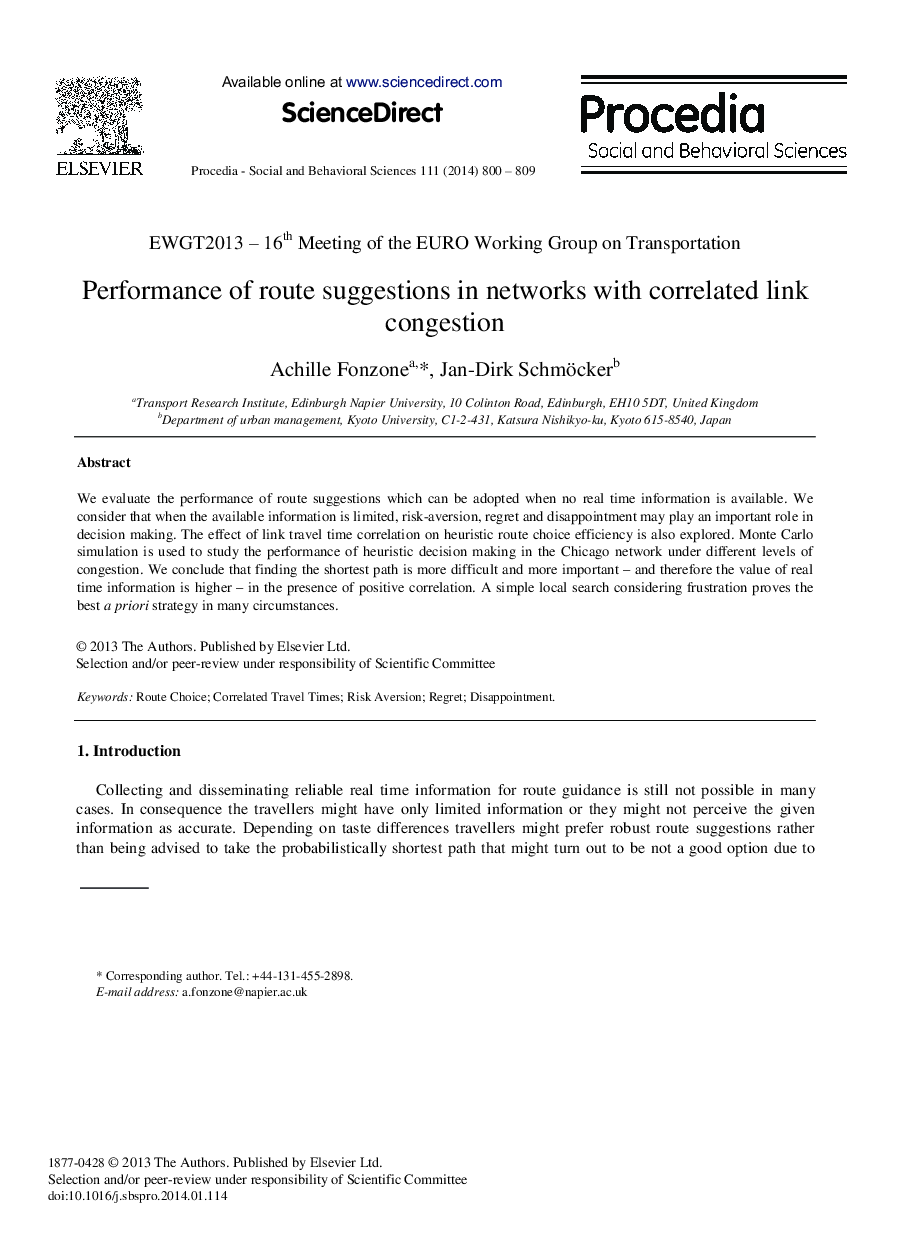| Article ID | Journal | Published Year | Pages | File Type |
|---|---|---|---|---|
| 1115967 | Procedia - Social and Behavioral Sciences | 2014 | 10 Pages |
We evaluate the performance of route suggestions which can be adopted when no real time information is available. We consider that when the available information is limited, risk-aversion, regret and disappointment may play an important role in decision making. The effect of link travel time correlation on heuristic route choice efficiency is also explored. Monte Carlo simulation is used to study the performance of heuristic decision making in the Chicago network under different levels of congestion. We conclude that finding the shortest path is more difficult and more important – and therefore the value of real time information is higher – in the presence of positive correlation. A simple local search considering frustration proves the best a priori strategy in many circumstances.
